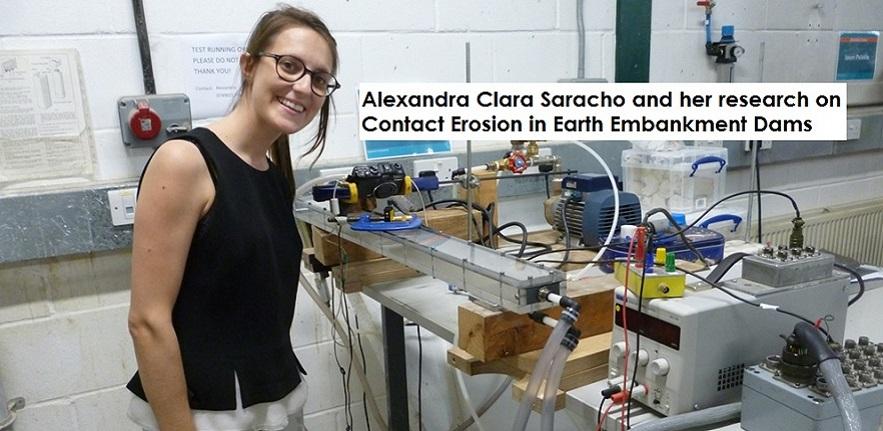
Submitted by Administrator on Mon, 09/04/2018 - 16:20
Second year FIBE PhD student, Alexandra Clarà Saracho was shortlisted as one of 3 finalist of the 49th Cooling Prize Competition held in Manchester. Her research was one of the 12 submissions for the prize.
The Cooling Prize is held annually by the British Geotechnical Association (BGA) to celebrate the life of Leonard Cooling who was chairman of the British Geotechnical Society Committee (forerunner of today’s BGA). It promotes young geotechnical professionals in the early stages of their career. For this, Alexandra had to submit a brief paper and give a presentation on the topic.
The finalists were:
Alexandra Clarà Saracho (University of Cambridge) who presented on Microbially Induced Calcite Precipitation (MICP) to Mitigate Contact Erosion in Earth Embankment Dams
Christopher Krechowiecki-Shaw (University of Birmingham) whose presentation described Using Traffic as a Low-cost Treatment for Temporary Heavy Haul Roads
Joe Newhouse (Mott MacDonald) who presented on Ground Movement due to Shaft Construction.
Alex's presentation dealt with some complex technical issues, but gave a very clear definition of contact erosion and seepage through the body of dams. It provided new insight on the geotechnical behaviour of bacterial-induced calcite precipitation at the interface between two granular materials and is based on the results of her current research to reduce the erosion potential of soils which is a very promising technique for addressing these problems in aging dams.
Very interesting and very well written, keeps the reader intrigued. A very innovative technique".
- said one reviewer
Another reviewer said "A very well presented laboratory study of Microbially Induced Calcite Precipitation (MICP) for erosion resistance in dams. The study was well constructed and focussed, leading to new insights for erodibility of weakly cemented materials."
The judges agreed that all three papers were of a very high standard and that all three candidates delivered excellent presentations, which made deciding on Newhouse as the winner a challenging task. While she did not win, Alex was delighted to be nominated as a finalist and have the opportunity to showcase her research at such an early stage in her PhD.

